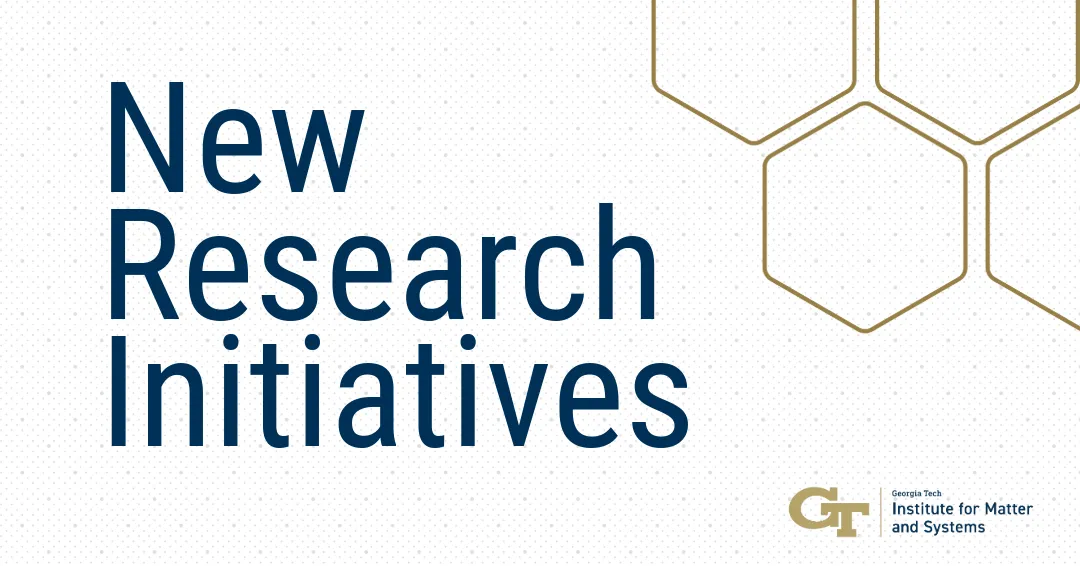Oct. 28, 2024
The Institute for Matter and Systems (IMS) at Georgia Tech has selected seven new interdisciplinary research initiatives to receive seed funding. This funding is part of the larger IMS effort to identify and support visionary leaders driving groundbreaking research and innovation.
IMS focuses on transformational technological and societal systems that arise where innovative materials, devices and processes converge.
“We are excited to support these researchers and their novel ideas,” said Michael Filler, IMS deputy director for Research and Innovation. “Their work exemplifies the spirit of innovation and excellence that IMS and Georgia Tech are known for, and we look forward to seeing the transformative impact of their research.”
The funded initiatives come from four Colleges and 10 Schools across the Institute, and from GTRI. These initiative leads were selected based on their innovative approaches, potential impact, and alignment with IMS’ mission to push the boundaries of science and technology. The winners will receive $10,000, access to state-of-the-art facilities, and other support from IMS to bring their projects to life.
IMS supports interdisciplinary research both in nationally recognized areas of need and those just emerging. It scaffolds research from the ground up, from seed funding for new initiatives to infrastructure support for research programs and embedded support for research centers. These newly announced initiatives are funded at the lowest level of IMS’ three-tiered model. Successful initiatives can receive further funding and/or be elevated to the program level of support.
The 2024 Initiative Leads:
Quantum Engineering | Yan Wang, George W. Woodruff School of Mechanical Engineering and Asif Khan, Electrical and Computer Engineering, College of Engineering.
Matter and Information | Florian Schafer, School of Computational Science and Engineering, College of Computing.
Metamaterials for National Security | Margaret Kosal, Sam Nunn School of International Affairs, Ivan Allen College of Liberal Arts.
Waste Materials Processing | Ebenezer Fanijo, School of Building Construction, College of Design; and David Citrin, School of Electrical and Computer Engineering, College of Engineering.
Microscale Thermal Tech for Sustainability | Noura Howell, School of Literature, Media, and Communication, Ivan Allen College of Liberal Arts and Joe Bozeman, School of Civil and Environmental Engineering, College of Engineering.
Sports Research, Innovation, and Technology | Jud Ready, Georgia Tech Research Institute.
Incentivizing Breakthrough Science | Usha Nair-Reichert, School of Economics and Richard Barke, School of Public Policy, Ivan Allen College of Liberal Arts.
